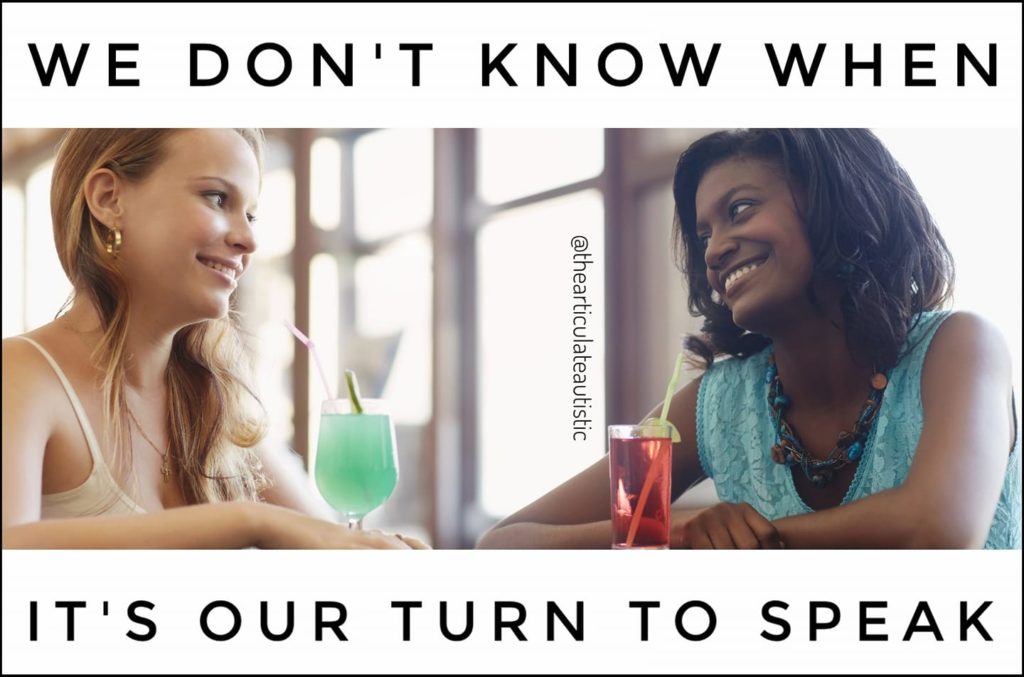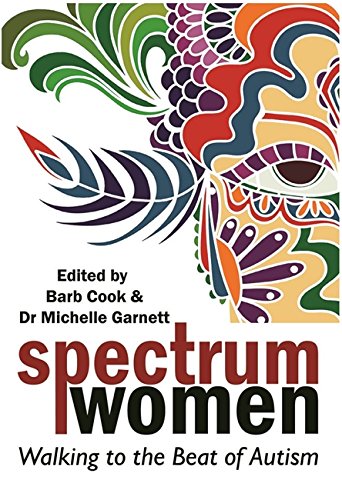We Don’t Know When It’s Our Turn to Speak

In keeping with the theme of interruptions, intentions, and social interactions between neurotypes, let’s talk about something I think should be addressed on its own.
I had a few comments recently where autistic people expressed that they didn’t know when it was their turn to speak on a conversation.
This is one of those differences between neurotypes that I had to actually read about to articulate. I’ve known it in the back of my mind for a while, but it’s so natural for me NOT to know when to speak in a conversation that I forget neurotypical people have this ability.
So, here’s another issue in communication: A neurotypical person and an autistic person can be having a conversation, and the neurotypical person feels interrupted and spoken over, while the autistic person feels awkward and confused at a conversation of “fits and starts”.
I’ll admit, having a conversation with me is a bit like trying to walk through a door with me at the exact same time. We’ll bump into each other, wave each other ahead, stop and wait, start up again at the same time, and finally give up.
With people I’m close to, though, we just talk over top of each other, exchanging information at lightning speed and somehow keep up with all the dips and turns.
Now…neurotypical people seem to be able to read where their cues are in conversations. They know exactly when to jump in and can take turns while letting the conversation run smoothly.
Many autistic people can’t. We look and listen for pauses, sure, but you may have just been taking a breath, and we’ll think you’re done and start talking.
This not rudeness. It is an inability to read social cues.
The best way to improve communication with your autistic loved one is to understand how your autistic loved one’s mind works! Intentions, motivations, and personal expressions (facial expressions or lack thereof, body language, etc.), are often quite different in autistic people than they are in neurotypical people.
Experience a better understanding of your autistic loved one by reading books about life from an autistic perspective as well as stories that feature autistic characters. You’ll have so many “Ah ha!” moments and start seeing your autistic loved one in a different light (and you’ll have a better understanding of their behaviors, which you may have been misinterpreting up until now).
Books I recommend for a better understanding of your autistic loved one:
Want downloadable, PDF-format copies of these blog posts to print and use with your loved ones or small class? Click here to become a Patreon supporter!






